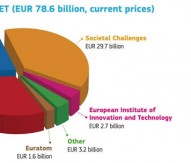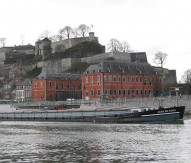
A key to academic policy making
The European Commission has closely worked with and sought the opinions of several influential European bodies during the creation of Horizon 2020; contacts include the European University Association, Science Europe and the European Association of Research and Technology Organisations. One prominent body which has heavily influenced the development of the next research and innovation framework programme is the League of European Research Universities (LERU). Described by Robert-Jan Smits, director general of DG Research and Innovation in the European Commission, as “vital”, it appeared fitting that the keynote address at LERU’s autumn reception entitled ‘ERA at the Horizon of 2020?’ was given to Smits.
A final agreement on Horizon 2020 was sealed at the end of the Irish Council Presidency following many months of negotiations between the Commission, the Council of the European Union and European Parliament. With the package of legislation now being vigorously debated by MEPs, the finer intricacies of the bills are now being securitised. With this in mind, Smits was at the last minute replaced by his colleague Jean-Claude Burgelman, head of unit for relations with stakeholders, DG Research and Innovation.
Outlining the altered timeline for Horizon 2020 legislation, Burgelman said there was still “fine-tuning” to be completed.
“We are facing a very busy autumn political and decision agenda. Although there is an agreement on the MFF and the broad architecture of Horizon 2020, there are still some areas to negotiate and some pitfalls to overcome. This now has to be decided and delivered and we hope this fine-tuning can be achieved in the next two months, at least by December when we hope the first calls will be launched.”
Importance of LERU
Burgelman described LERU as playing a central role in the design of Horizon 2020, defining it as one of the “most successful lobby groups in Brussels,” citing the association’s breadth of membership as a core asset.
“Being personally involved in this new wave of doing research and innovation in Europe, LERU has played a vital role shaping Horizon 2020. This includes the design, architecture and principles, but also the engineering for the over-arching framework for Horizon 2020, the conceptual framework, and the policy framework. LERU has also made a difference in putting the European Research Area (ERA) into the frame.
“I think it is not an understatement to say that this is one of the most successful lobby groups in Brussels. That is of course because of the quality of the network that LERU represents – a very substantial part of research in Europe, in particular the high-impact research; LERU universities play a very good prominent role in all kind of rankings. LERU is most definitely developing itself as a benchmark for the way academic policy issues are developed in Europe and beyond. LERU members have received at least 20% of all competitive FP7 funding, something I would describe as a big success. There are very few organisations which are so successful and influential on the European scene,” Burgelman continued.
“LERU has heavily influenced research and innovation policy making in Europe and the fact that you do it as an organisation, I can guarantee, as a DG, really adds value to individual member states – it is much more forceful speaking collectively than individually and we hope this continues for the future. We have had critical discussions with LERU, very critical at times, but we would encourage LERU to continue playing this constructive but critical role; without this constructive criticism, the architecture of Horizon 2020 and the Innovation Union would not be as solid as it is today.”
ERA
LERU has also played an “enthusiastic” role in the development of the ERA. According to Burgelman, the association has helped provide “concrete measures to increase…the level of excellence of our research system”. The head of unit also paid tribute to LERU’s important work in the creation of the ERA Stakeholder Platform in order to consult with interested parties on the development and subsequent completion of the ERA.
“In the set up and implementation of the Stakeholder Platform, the role of LERU was important – it has been the driving forces behind the Memorandum of Understanding. In particular, they have played a key role in bringing forward a priority strategy agenda for researchers and have contributed in developing a dossier for open access and improving doctoral training – one of the issues of embedding social sciences into the grand challenges more prominently and more successfully is precisely paying attention to doctoral training.”
Burgelman concluded by adding that the contributions of LERU were crucial to the successful development of Horizon 2020.
“We have built the foundations and pillars of Horizon 2020, ERA and the Innovation Union on excellence, impact and innovation, foundations built to last. A lot of work has been done to make it work…LERU is absolutely fundamental.”
Here, you can read two interviews with Professor Kurt Deketelaere, secretary general of LERU, regarding his thoughts on the final Horizon 2020 budget and the reimbursement of costs.
Jean-Claude Burgelman





